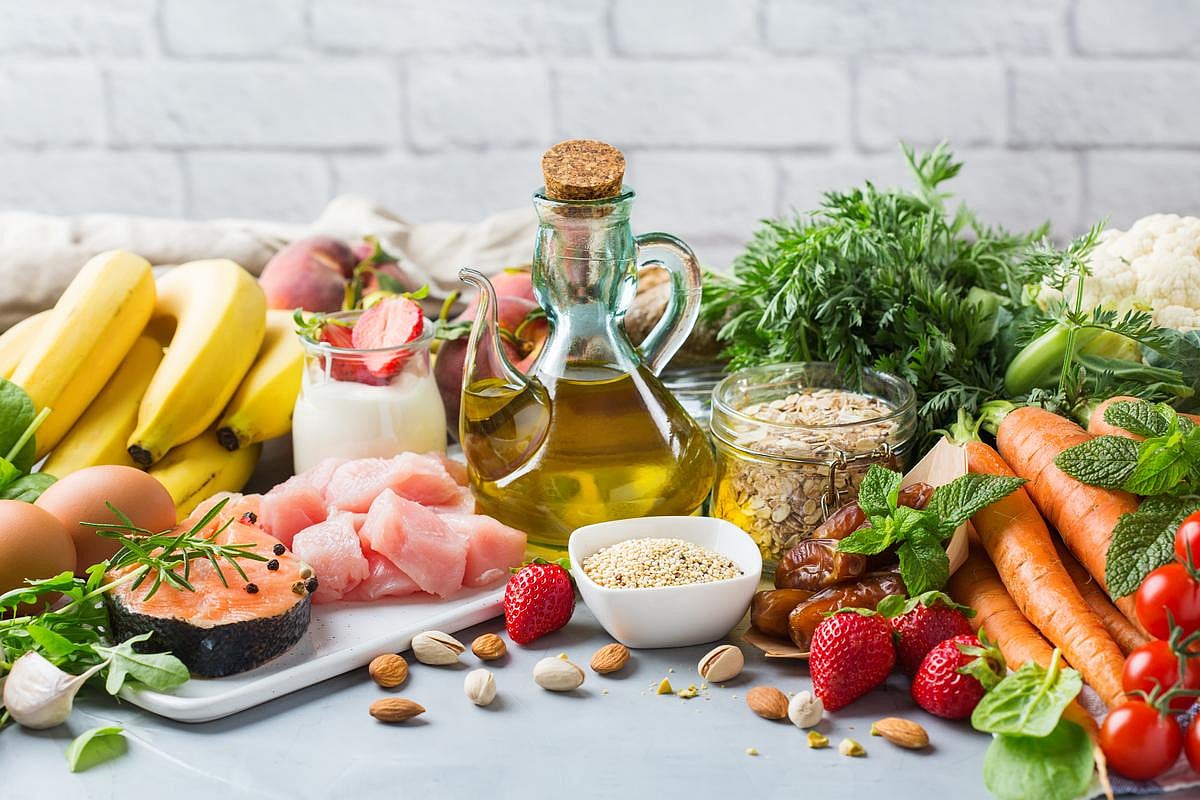Due to a recent change of our website, the process for submitting refill requests online has now changed.
Please click on “Sign Up Today!†to create a new account, and be sure to download our NEW Mobile app!
Thank you for your patience during this transition
Get Healthy!

- Dennis Thompson
- Posted October 21, 2024
Healthy Eating May Keep 'Low Grade' Prostate Cancers in Check
A healthy diet can help keep prostate cancer in check, a new study finds.
The better a man eats, the less likely his low-grade prostate cancer will progress to a more dangerous state, researchers reported Oct. 17 in the journal JAMA Oncology.
For every increase of 12.5 points in a zero-to-100 healthy eating scale, men were 15% less likely to have their grade 1 prostate cancer progress to at least grade 2, and 30% less likely to have it progress to grade 3 or greater, results show.
“While there have been previous research studies looking at diet and its relationship to prostate cancer, we believe that ours is the first to provide statistically significant evidence that a healthy diet is associated with a reduction in risk of prostate cancer progressing to a higher grade group, as shown by a reduction in the percentage of men on active surveillance experiencing grade reclassifications over time,” said co-senior researcher Dr. Christian Pavlovich. He's a professor in urologic oncology at the Johns Hopkins University School of Medicine in Baltimore.
For the study, researchers tracked the data on 886 men diagnosed with grade 1 prostate cancer between January 2005 and February 2017. Grade 1 prostate cancers are indolent, don’t look very different than normal tissue, and haven’t spread to other parts of the body.
All of the men completed a diet questionnaire, and researchers calculated a Healthy Eating Index score for each patient based on his response.
“The HEI is a validated measure of overall diet quality, quantifying how well an individual’s dietary pattern adheres to the recommendations of the U.S. Department of Agriculture’s Dietary Guidelines for Americans,” said lead researcher Dr. Zhuo Tony Su, a fifth-year resident at the Brady Urological Institute and Johns Hopkins.
“We looked at each patient’s HEI score -- as calculated from their dietary information recorded at enrollment in our active surveillance program -- and assessed whether men with a higher quality diet were less likely to experience grade reclassification in the years afterward,” Su added in a Johns Hopkins news release.
After an average 6.5 years of follow-up, about 21% of the men had their cancer progress to grade 2 or higher and 6% had it advance to grade 3 or higher, researchers said.
Those who ate better were less likely to have their cancer rise to a more dangerous grade.
“We found a statistically significant inverse association between adherence to a high-quality diet… and the risk of grade reclassification during active surveillance,” said co-senior study author Bruce Trock, a professor of urology, epidemiology and oncology at Hopkins.
“In other words, the higher the [dietary quality] scores, the more reduced the risk that a low-grade prostate cancer had progressed to a higher grade disease that mandated curative treatment,” Trock added.
Findings indicate that reduced inflammation resulting from a heathier diet could be one reason why some prostate cancers didn’t progress, researchers said.
“Our findings-to-date should be helpful for the counseling of men who choose to pursue active surveillance and are motivated to modify their behaviors, including quality of diet,” Pavlovich said.
“However, to truly validate the association between higher quality diet and reduced risk of prostate cancer progression, future studies with more diverse populations are needed,” he added.
More information
The U.S. Department of Agriculture has more on its Dietary Guidelines for Americans.
SOURCE: Johns Hopkins Medicine, news release, Oct. 17, 2024
